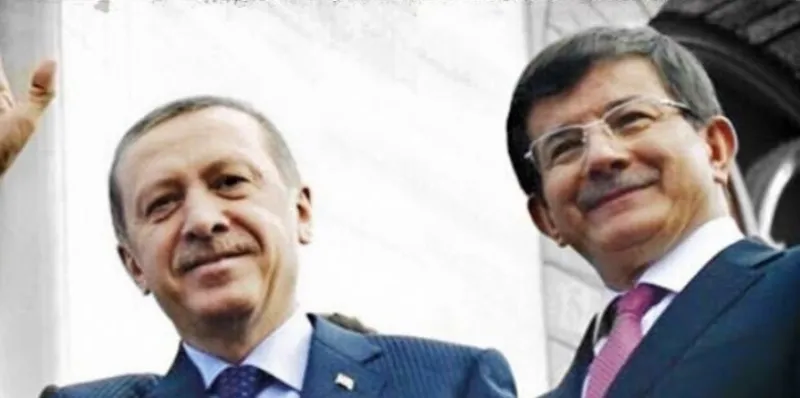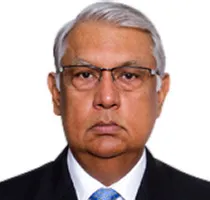In the days of the Ottoman empire, the sultan did not bat an eyelid while removing the grand vizier, equivalent of a prime minister today. If the sultan was in a foul mood, he also ordered that his head be lopped off. Ahmet Davutoglu, the former prime minister, may have lost his job but will not lose his head. He has been forced to resign by the Turkish president, Recep Tayyip Erdogan, after 20 months in office. Davutoglu's departure underscores Erdogan's dominance over his Justice and Development Party (AKP), and his tightening grip on power. It was not so much a tussle for power, but Erdogan's inability to tolerate dissent and, perhaps, a potential political challenge to his leadership that led to the forced resignation. Davutoglu's sacking paved the way for a new Turkish prime minister, a loyal politician who will not question, but faithfully push the agenda set by Erdogan. Traditionally, Turkish presidents have been elected by the parliament, but in 2014, Erdogan was elected as president in a direct vote. Since then, the tussle for power between the president and the prime minister has taken many forms and simmered, till the sacking of Davutoglu.
The transport, maritime affairs and communications minister, Binali Yildirim, has been nominated as the new prime minister by the ruling AKP by electing him the party chairman in an extraordinary session, amidst much speculation that Erdogan's son-in-law, Berat Albayrak, currently the energy minister who got embroiled in the controversial trade in oil with the Islamic State, the justice minister, Bekir Bozdag, and the deputy prime minister, Numan Kurtulmus, were also possible candidates. Finally, Yildirim emerged as the sole candidate. In his acceptance speech, Yildirim faithfully echoed his master's voice and called for a concerted move to implement the presidential system of government by changing the Constitution. Yildirim, accompanied by his hijab-clad wife, accepted congratulations from his party members. He also proclaimed that fighting terrorism will be the top priority of the government. Turkey has faced a long-standing insurgency by the Kurdish people and its militant organisation, the PKK, which is fighting for independence for decades.
Erdogan has turned increasingly authoritarian as he bulldozes through with his objective of instituting a presidential form of government in Turkey and merging all executive powers into the office of the president. Davutoglu's resignation has been viewed by critics and the Opposition as yet another manifestation of an avowedly authoritarian leader unwilling to brook opposition and ruthless in eliminating those who stand in his way. Already dubbed as 'Sultan Erdogan' with neo-Ottoman ambitions by his critics, the sacking of the prime minister is being compared to the historical behaviour of erstwhile Ottoman sultans. Erdogan has accumulated more power in his hands than any other Turkish leader in the country's recent history.
The events leading to the resignation denouement began with Erdogan issuing a warning to Davutoglu not to forget how he got his job while addressing local officials. The president and the former prime minister thereafter had a meeting in which Erdogan demanded Davutoglu's resignation which the latter readily submitted. There is no doubt that Davutoglu's political career was built by Erdogan and he became a close ally. His popularity in the party grew and fed Erdogan's insecurity, but Davutoglu has been careful after his resignation to play down any speculation that he will challenge the president, an accomplished political 'street fighter', whereas Davutoglu is a mild-mannered intellectual and a former academic. Turkey's main Opposition leader, Kemal Kilicdaroglu, however, said that the resignation was not a mere intra-party struggle but a "palace coup", which must be resisted by supporters of democracy. Erdogan's political objective of changing the Constitution and installing a presidential form of government would put him beyond parliamentary scrutiny, according to the Opposition.
Davutoglu's resignation will have repercussions within and beyond the borders of Turkey, given the country's key role in the region and Turkey being a neighbour of Syria and Iraq where civil wars continue and the barbaric Daesh, or the Islamic State, even though squeezed by government forces and interventions by Russia, the United States of America and regional powers like Iran, Turkey and Saudi Arabia, shows no signs of melting into the desert. Turkey's war of attrition with the Kurdish people and with their brethren in Iraq and Syria has also escalated.
The European Union must be worried about the deal it has struck recently with Turkey on refugees. It was Davutoglu who negotiated the deal with Angela Merkel of Germany. With the former's resignation, the question mark over the deal becomes more relevant. It seems that Erdogan was not fully privy to this deal, and has publicly belittled it saying that when he was prime minister he had agreed to visa-free travel being implemented by October 2016. EU's nervousness about the deal unravelling amidst severe criticism of it undermining human rights values is now palpable. Turkey has been host to over 2.75 million refugees, mainly from Syria, who have been crossing over into Europe regularly, creating a migration crisis. Germany has admitted the highest number of refugees numbering hundreds of thousands. The deal between the EU and Turkey is quid pro quo: Turkey will take back refugees in return for visa-free travel for its nationals to countries that are party to the Schengen visa arrangement. It will also receive billions of euro for looking after the refugees.
Once again, the Europeans, so vocal about human-rights protection everywhere, are more than willing to trade off the rights of refugees with Erdogan's Turkey whose position on human rights has been draconian. Turkish authorities have cracked down on the media and scores of journalists have been prosecuted and jailed. Turkey's leading newspaper, Zaman, was confiscated. Another media group, Koza Ipek, and its two television channels were seized. Pro-Kurdish TV channels and broadcasters critical of Erdogan were silenced by cutting off their access to satellite communication. The peace process with the Kurds has ground to a halt, and renewed fighting in the southeast of the country has triggered internal migration of almost 400,000 people. Some academics, who signed a petition for a peaceful solution to the Kurdish problem, found themselves in jail and many dissenting academics have lost their jobs.
On these issues, Davutoglu differed with the president and specifically objected to the practice of denying bail to journalists. He had also advocated a softer approach to the Kurdish issue, favouring negotiations with the separatists. Just before the resignation, an anonymous blog, allegedly by a pro-Erdogan journalist, started circulating, blaming Davutoglu of conspiracy with Western powers and Turkey's enemies to undermine the president. Further humiliation followed when Davutoglu was deprived of his powers to appoint provincial party chiefs while on an official visit to Qatar. One major disagreement was centred on Davutoglu's proposed and publicly-backed legislation aimed at tackling corruption known as the 'transparency package'. As prime minister, Erdogan was implicated in a serious corruption scandal that involved several government officials and his immediate family. He made sure that the bill was withdrawn.
Within the ruling AKP, Davutoglu's support was not substantial. In fact, he was appointed prime minister by Erdogan because he is a political lightweight. Erdogan would not have risked losing his support base in the party if a good number of MPs were supportive of Davutoglu. The Americans were also fishing in these troubled waters. Erdogan felt slighted by the Obama administration, which seemed to express far more warmth towards Davutoglu than the president during their respective visits to Washington. Ultimately, it was an internal power struggle that felled Davutoglu.
Davutoglu's departure will no doubt lead to greater concentration of power in the hands of Erdogan. Eulogies and articles have already indicated that Erdogan's personality cult is being revved up in the pro-AKP media. On the flip side, Davutoglu has been criticised for not kowtowing to Erdogan. Some commentators have reportedly invoked the Koran (Verse < class="aBn" tabindex="0" data-term="goog_509776822">< class="aQJ">4:59), which says "O you who have believed, obey Allah and obey the Messenger and those in authority among you" — authority here apparently refers to Erdogan. Such narratives serve to buttress arguments that Erdogan uses religious themes to glorify himself and to fan his authoritarian ambitions. Turkey's support to the Muslim Brotherhood government in Egypt was a manifestation of this policy.
Turkey's foreign policy under Erdogan and Davutoglu has been dubbed "neo-Ottoman", which has been translated as Turkey becoming the major regional power in the territories under the erstwhile Ottoman empire, covering the Balkans, the Middle East and the Caucasus. In the domestic context, it meant the restoration of Ottoman political and cultural heritage. Davutoglu cannot escape culpability for Turkey's disastrous Syria policy, wherein for various complex reasons, support for the Muslim Brotherhood and regime change became Turkey's preferred option. By all accounts, Davutoglu's Syria policy has left Turkey with a massive refugee problem and a severe drain on its economy. While Erdogan and Davutoglu did not differ much on vision and strategy, it was the operational management that led to a chasm between the head of State and the head of government.
Davutoglu's "zero problems with neighbours" doctrine lies in a shambles today with Turkey's relations with its neighbours in bad shape. With Russia, Turkey's relations plummeted after its air force shot down a Russian aircraft over Syria. Turkey may now have another opportunity to mend fences with the US, Russia and even Iran by adjusting its Syria policy. Turkey can be expected to transform itself into a fully executive presidential form of government, thereby fulfilling Erdogan's political ambition of concentrating as much power as he can in his hands. Turkey's Islamist orientation will also increase, as will its collaboration with Pakistan, a long-standing Cold War ally. Turkey has agreed to upgrade the F-16 aircraft of the Pakistan air force at a time when Pakistan's attempts to acquire upgraded additional F-16 aircraft from the US have run into trouble. In the recent case of the execution of Motiur Rahman Nizami, the amir of the Bangladesh Jamaat-e-Islami who was convicted of war crimes, Turkey aligned itself with Pakistan in protesting against the execution and even withdrew its ambassador from Dhaka. These trends are not conducive to positive developments in Turkey's relations with Bangladesh and India. At best, ties will gravitate towards the cool end of the spectrum. Turkey's search for an Islamist future and leadership of the Islamic world will lead to conflict and chaos in the Middle East. The destruction of Syria is the most egregious example of this failed approach.
This commentary originally appeared in The Telegraph.
The views expressed above belong to the author(s). ORF research and analyses now available on Telegram! Click here to access our curated content — blogs, longforms and interviews.




 PREV
PREV


